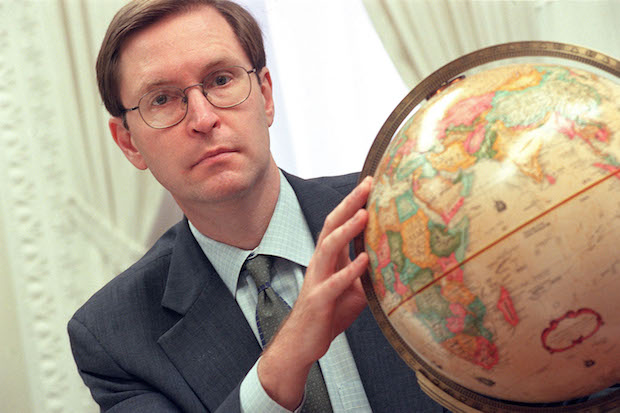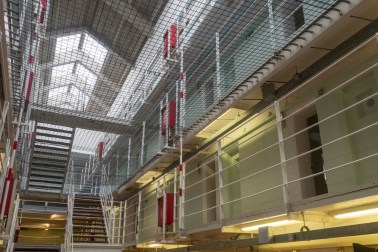This piece first appeared as the leading article in this week’s Spectator magazine.
It is only a few months since gloomy economic commentators were confidently predicting that the world was about to plunge into a dark era of protectionism. Yet the global economy begins this year in its healthiest state ever, growing faster than any time since 2011. There has been a change in political rhetoric, but not in the willingness of people around the world to trade with each other. According to the OECD’s most-recent projection, made in November, world trade grew at 4.8 per cent last year. Something seems to be going badly right.
Negative sentiments about the world economy echo those which have hung over Britain’s economy ever since the Brexit referendum. A month before that event, it should never be forgotten, a Treasury paper signed by George Osborne forecast that ‘a vote to leave would cause an immediate and profound economic shock’, causing a recession with half a million more on the dole. Instead, employment has risen by almost 400,000 — and a lack of workers has become one of the UK economy’s biggest problems. Britain’s biggest jobs website says vacancies are up 20 per cent year-on-year, while unemployment sits at a 40-year low. These are the conditions for pay rises to accelerate.
People tend to think the worst. As a species, we have evolved to focus on what is wrong. We are forever telling ourselves that something dreadful is about to happen, whether it be economic Armageddon or climate catastrophe. As the foreign secretary points out on page 20, mankind has never been richer, healthier or less inclined to fight wars. If you could choose any time to be born, not knowing your social position or even nationality, you would choose now.
It is a wonder that the endless talking-down of Britain’s prospects has not done more harm. As the chief economist of the Bank of England pointed out, the economics profession has had its ‘Michael Fish moment’, referring to the weatherman’s dismissal of the 1987 storm and the damage that did to the credibility of meteorology. Like the weather, the economy is the result of millions of forces, often unpredictable.
The global economy does suffer severe reversals at times, but its general direction is upwards because human societies have a natural affinity for economic growth. Almost everyone wants to better themselves, and the vast majority are prepared to work to achieve that outcome. Government works best when it provides low taxes, regulatory restraint and sound money. That is a recipe for a sustained upwards trend in wealth over the medium to long term, whatever hiccups might occur in the short term through banking crisis, inflationary shock and so on. It has worked everywhere that it has been tried.
As the Office for Budget Responsibility is fond of reminding us, Britain is statistically overdue a recession — and traditionally, economists are usually blindsided by downturns when they actually strike. We have plenty of problems, chief among them low wages, the result of low productivity. But wage inequality, we learned this week, is at a low not seen for about 30 years: since the 2010 general election, the incomes of the poorest have been rising fastest. The fruits of the recovery are so far being distributed where they are needed most.
This point would be a powerful antidote to Corbynism if the Conservatives could work out how to get the message across. Global capitalism has created a golden era of poverty reduction: never have so many been lifted so fast out of illness, ignorance, squalor, poverty or misery. Fast growth in the developing world means that global trade is increasing at a healthy rate, which ought to provide a pointer for the post-Brexit UK economy. It is with countries such as China and India (whose economies both grew at 7 per cent last year) that the best opportunities to do business exist. Once freed from the parochial, protectionist instincts of the EU, Britain should be in an excellent position to take advantage.
The UK economy recovered from the 2008 crash far faster than others in Europe, and it’s encouraging to see that these are now catching up. The member states of the EU will be Britain’s biggest single trading partner for some time, and they are now starting to address chronic unemployment and sclerotic growth rates that have held them back for so long.
The significant tax cuts just passed in the United States, our largest single trading partner, will accelerate this new chapter of global growth: a potential reflected in recent stockmarket highs.
Brexit, on its own, will not change a thing. It won’t by itself make anything better or worse. But it will hand new powers to ministers — who can use them well or badly or not at all. If Britain does not prosper over the next few years, it will not be because of a lack of opportunity.






Comments